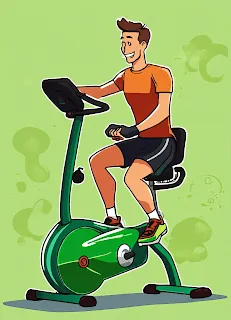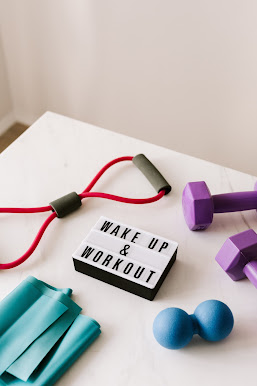Setting Realistic Short-Term Fitness Goals to Boost Your Motivation
My Review
When it comes to fitness, many of us want results right now. Whether it’s about feeling better, looking stronger, or building healthy habits, setting short-term fitness goals can really help you stay motivated. Long-term fitness goals are essential, but short-term fitness goals give us small wins along the way, making the fitness journey enjoyable and sustainable. Let’s dive into what makes a goal “short-term,” why these fitness targets are so effective, and how you can set some practical short-term fitness goals for yourself.
What Are Short-Term Fitness Goals?
Small, attainable objectives that you can accomplish in a few days, weeks, or at most a few months are known as short-term fitness goals. These fitness goals are great for building consistency, confidence, and keeping momentum high. For example, aiming to exercise three times a week for 20 minutes over a month is a realistic fitness target that fits into almost any lifestyle. Setting these kinds of achievable fitness goals makes it easier to build fitness into your routine and gives you quick wins along the way.
Why Short-Term Fitness Goals Matter
Treat long-term objectives as the end goal and fitness as a journey. Short-term fitness goals are like pit stops, helping you refuel, celebrate small wins, and stay motivated. Achieving these smaller fitness goals gives you a feeling of accomplishment and keeps you on track to reach the bigger picture. Fitness beginners especially benefit from short-term goals since the fitness journey can sometimes feel long and overwhelming without these smaller steps.One of the biggest reasons people lose motivation in fitness is a lack of visible results. Short-term fitness goals keep you focused on achievable wins, so you don’t lose steam. Imagine the feeling of reaching a new fitness milestone every few weeks—each one builds your confidence and strengthens your commitment.
Examples of Short-Term Fitness Goals
Here are some practical, achievable fitness goals that make great short-term targets:
- Increase Daily Steps: Aiming for 7,000 steps a day is a realistic fitness goal for beginners. Once you’re consistent with this, try bumping it up to 10,000 steps. This is one of the easiest fitness goals to start with since it doesn’t require special equipment—just a commitment to moving a bit more.
- Daily Stretching for Flexibility: Want to improve your flexibility? Set a fitness goal to stretch for 10 minutes each day. This short-term fitness goal helps increase your range of motion, reduce muscle stiffness, and make you feel more mobile. Plus, it’s a fitness habit that only takes a few minutes each day
- Complete a 5K Run or Walk: This fitness goal is great for beginners. Set a short-term fitness goal to run or walk a 5K, aiming to finish at a comfortable pace. Once you’re confident, you could challenge yourself by setting a fitness goal to complete the 5K in a specific time.
- Increase Workout Frequency: If you currently work out once a week, aim to exercise two or three times a week for the next month. This is a short-term fitness goal that can make a big impact on your fitness level by creating more consistency.
- Improve a Specific Exercise: Set a fitness goal around mastering a particular exercise, like push-ups or planks. Set a goal number at the beginning and work your way up over a few weeks. This fitness goal can help you track progress in strength and give you clear, measurable results.
- Each of these fitness goals is small enough to feel manageable, but each can also lead to meaningful improvements in your fitness.
 |
| Short term fitness Goals |
Tracking Your Fitness Progress
Tracking your fitness journey can make a big difference in seeing your fitness achievements over time. Use a fitness app, a journal, or a calendar to mark each day you reach your fitness goal. Seeing your progress adds motivation and shows the value of sticking with your fitness journey.
For example, if you’re aiming to walk 10,000 steps each day, consider using a fitness tracker or setting daily reminders on your phone. If your fitness goal is stretching daily, try doing it at the same time each day so it becomes part of your routine. Simple tracking makes it easier to see your progress and helps you feel proud of each fitness milestone.
Short-Term vs. Long-Term Fitness Goals
It’s important to know the difference between short-term fitness goals and long-term ones. While short-term fitness goals help you see quick results, long-term fitness goals take time and effort to reach. For example, increasing your steps is a short-term fitness goal, while training for a half marathon would be a long-term fitness commitment. Understanding the difference helps keep your focus clear and realistic.
Think of short-term fitness goals as the building blocks for your long-term fitness vision. Each small fitness goal adds to your bigger picture, even if it feels like a tiny step. Remember, all progress matters in fitness, so enjoy these small achievements along the way.
How Short-Term Fitness Goals Build Long-Term Success
Every short-term fitness goal you set and achieve moves you closer to overall fitness. By building small habits, like increasing your steps or stretching daily, you create a foundation that makes long-term fitness possible. Small fitness goals can be surprisingly powerful—they make it easier to stay consistent, and consistency is what ultimately drives success in fitness.
Final Thoughts on Setting Fitness Goals
Fitness is more than just the end result—it’s about the whole journey. By setting short-term fitness goals, you’re giving yourself a sustainable approach that feels rewarding and achievable. No matter where you’re starting from, these small fitness goals keep you motivated, help build confidence, and make the fitness journey something you look forward to.
If you’re just beginning, start with one or two short-term fitness goals, like increasing your steps or stretching each day. Fitness isn’t about instant results; it’s about creating a lifestyle that makes you feel your best. The beauty of fitness is in the progress, so embrace the journey, celebrate each fitness milestone, and keep moving forward. Fitness is about growth, not perfection.
Conclusion
Fitness is about finding joy in every step, every stretch, and every small win. By setting realistic short-term fitness goals, you’ll see your progress, stay motivated, and continue to build toward your long-term fitness vision. Fitness isn’t a race; it’s about enjoying the path and embracing every improvement along the way.
.webp)






0 Comments